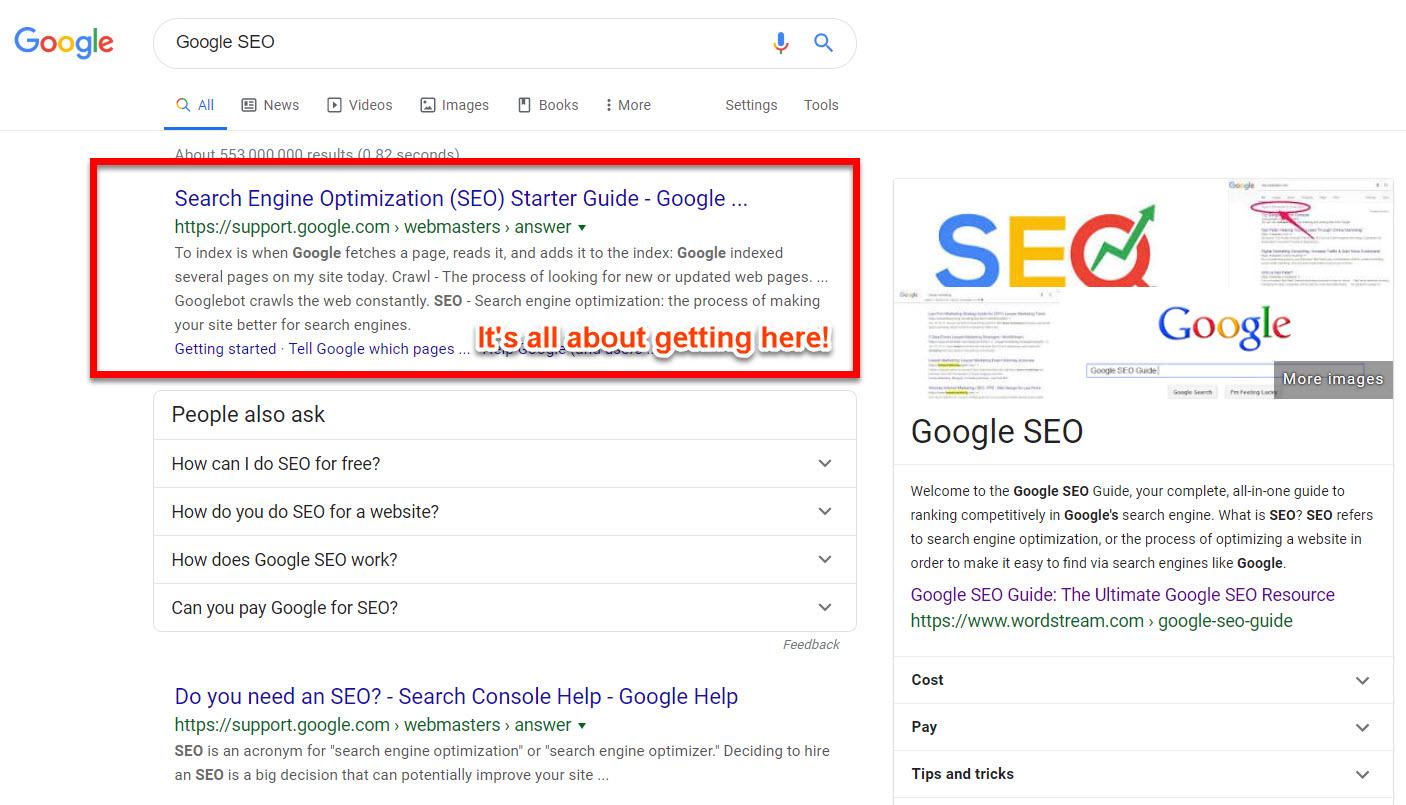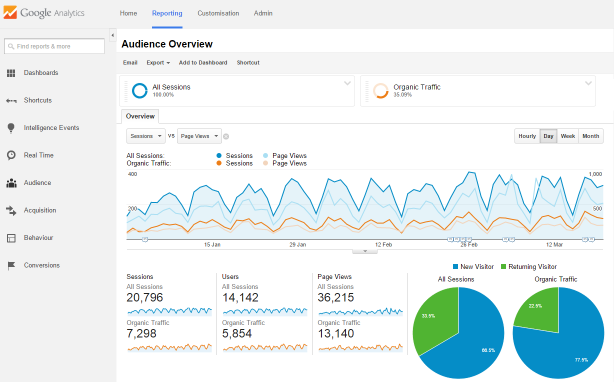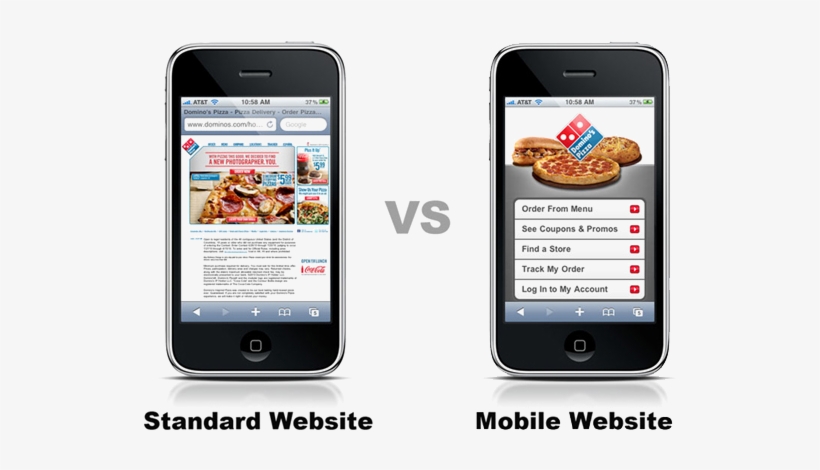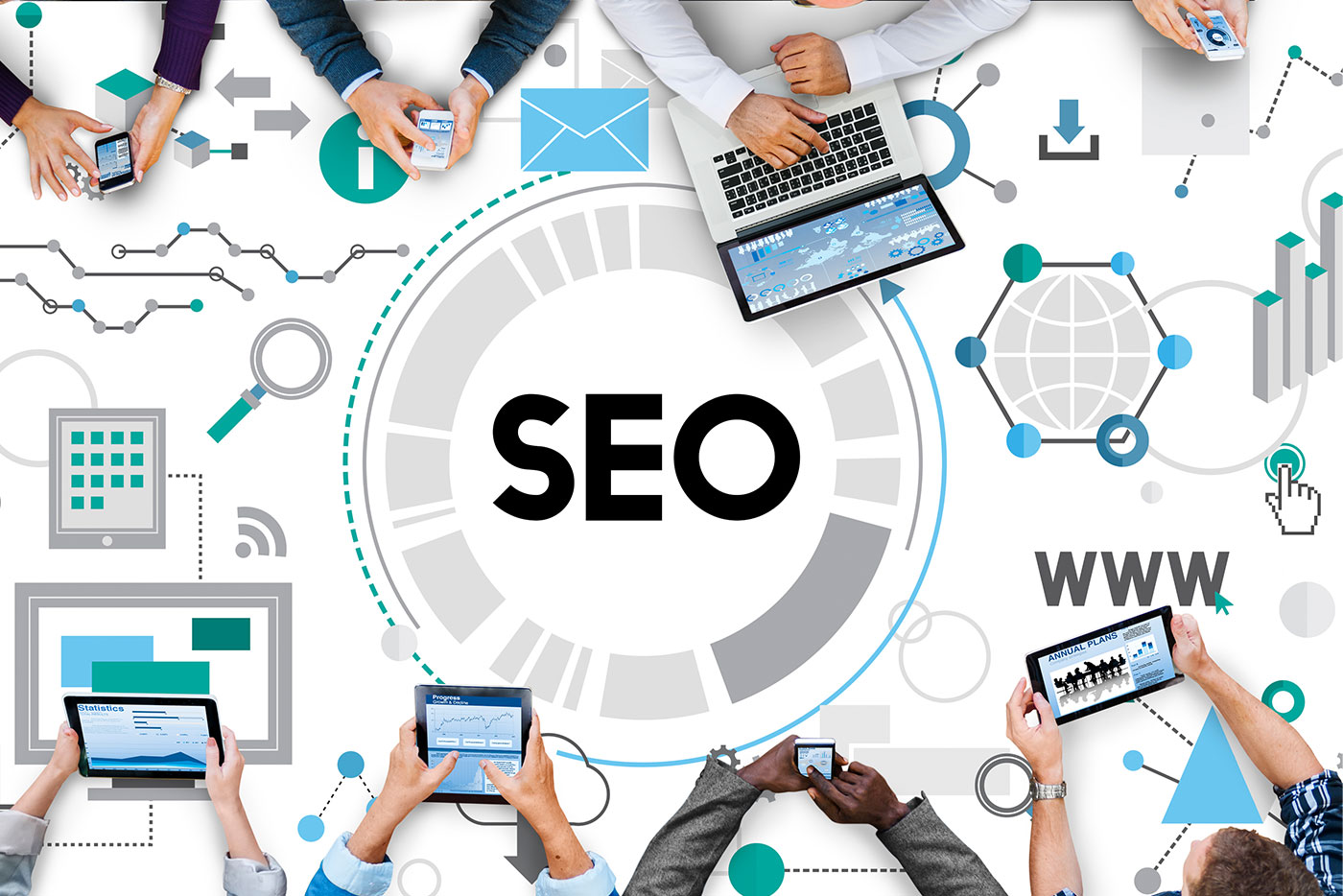Is SEO dead? This is a question that many people are asking, especially in the wake of Google’s updates over the past year or so. But does this mean that SEO is no longer helpful? No! SEO is more important than ever – it’s just changed a bit. In this post, we’ll look at what’s changed and how you can still ensure your website ranks high in search results. So if you’re wondering whether or not SEO is dead, read on! Learn about all the types of SEO services and how to do them correctly. You may be surprised at what you find.
What is SEO?
SEO stands for search engine optimization, which refers to the process of getting your site higher in Google’s results listings. This can be done in several ways with different types of SEO services, including link-building and writing quality content people want to share.
SEO deals with various factors affecting how high your site appears in results. Search engines like Google rank sites based on relevance, authority, and popularity. Site owners can optimize their websites to rank higher, thus increasing visibility and boosting traffic.

(Image Credit: Gasabo)
Types of SEO Services?
There are several types of SEO services and optimization techniques that you can use. Some of these include:
On-Page SEO
This refers to strategies that you implement directly on your website. It includes things like editing meta tags and writing site copies. With on-page optimization, you’re taking steps to improve your site’s content to rank higher.
On-Page SEO helps you choose the keywords for your site by identifying relevant words and phrases. This helps search engines like Google better understand your content and how it ranks against others.
Off-Page SEO
When people refer to Off-page optimization, they are generally referring to strategies carried out away from your website. These include link-building efforts like getting other websites to link back to your site, which is one of the most effective methods for climbing up Google’s ranking system.
Link building can also include social media efforts like sharing content through Facebook and Twitter. Having links to other reputable websites boosts your own site’s authority in Google’s eyes.
Local SEO
Local SEO refers to strategies that target a specific geographic location. This can be helpful for brick-and-mortar businesses like local grocery stores, restaurants, plumbers, etc. One way of optimizing your site for a local area is by adding geotag information to the pages of your site.
With local SEO, you can take steps to rank higher in Google Maps, which gives you a better chance of being seen by local customers – who are more likely to purchase products or use services within a certain geographical area. It’s also helpful for reaching mobile users who search using local keywords.
**Fun Local SEO Facts:
- 46% of Google searches have a local search intent
- “Near me” searches have increased by more than 500% percent
- 28% of local searches result in a purchase
Enterprise SEO
Enterprise SEO refers to larger-scale marketing campaigns that aim to boost your site’s rankings by creating content and sharing it with online audiences. This type of SEO is generally used to promote big sites like blogs or news websites but can also be helpful for eCommerce stores looking to increase consumer visibility.
Enterprise SEO can be helpful in link building, which includes pitching articles to major online publications and working with bloggers to get more links to your site. Social media campaigns are also used to create user engagement. It’s a good idea to have a detailed strategy that specifies your objectives and how you plan to accomplish them.
Technical SEO
Technical SEO refers to various strategies you can deploy to optimize your site’s performance. This strategy ensures your site is accessible for search engines like Google and Bing to crawl.
You Might Also Like
Technical SEO includes editing the code on your website, which helps Google correctly index each page for relevant searches. It also involves minimizing redirects and using nofollow links in order to avoid passing along too much “link juice” to other pages and diluting your own site’s authority.
**What is Link Juice? Link juice is a slang term used to describe and measure how much power a backlink passes onto another site and therefore strengthens it.
Who Should Use SEO?
SEO is a good marketing investment for anyone with a website. People use search engines to find products and services, so it’s a good idea to take steps to optimize your site for organic searches. SEO can help you rank higher in Google Maps and other local listings, even if you’re only looking for local customers.
**What is an organic search? Organic search results are the unpaid results that appear on a search engine results page after a query.
Benefits of SEO
SEO is essential for various reasons, as explained below:
-
Increase Web Traffic
Search engine optimization increases your site’s visibility, which boosts organic search traffic. Even if you don’t immediately see increased customer activity, increased rankings can bring more visitors to your site over time. SEO is a long-term investment that will help you grow your site’s audience.
SEO is a great way to test out different marketing strategies and see what works best for your business. With SEO, you can try out various types of content like infographics, blog posts, videos, and more.
With SEO, it’s also possible to track how people find your website. Analytics tools like Google Analytics make monitoring where visitors are coming from easy and help you determine which methods are most effective. For example:

(Image Credit: Web Site Advantage)
-
New Customers & Conversions
Having a good rank in search engines like Google makes it easier for potential customers to find your business. This gives you a better chance of converting them into happy customers – who will hopefully remain loyal and become repeat buyers.
This is also helpful for increasing conversions to your website, as people will be more likely to visit if they can easily find what they’re looking for. The more information you can include about your products or services, the easier it is for potential buyers to make a choice.
SEO is also great for building customer trust and credibility, showing that you care about improving your business and providing high-quality content. Customers want to know they’re getting good value from the brands they choose, and SEO can help instill that sense of confidence in your company.
**What is a Conversion? A conversion is defined as when a user buys a product. The conversion rate is then calculated as follows:
10 actions / 1,000 visitors * 100 = 1.0 percent.
-
Huge Marketing Reach
SEO makes it easier for viewers to find your website – but if they can’t convert into leads or loyal customers, you’re not getting much benefit.
This is why it’s essential to have a strategy that addresses the other aspects of online marketing. SEO can be used in conjunction with advertising on social media outlets like Facebook and Twitter to get your content in front of large audiences.
Once potential customers arrive on your website, it’s essential to have a firm plan for turning them into valuable leads. Lead generation tools like email marketing and remarketing ads will effectively find new customers and encourage repeat purchases.
-
To Stand Out from Competitors
Many businesses compete for the same title of top dog in their industry. A strong SEO strategy can help you stand out from competitors and get ahead of the competition.
If customers are searching online for a business similar to yours, being at the top of search results gives you a better chance of getting their business. Not only that, but it’s possible to be more specific about your target audience. By using SEO to target a particular type of customer, you can make yourself more visible to those demographics.
SEO also helps you get your website out there on social media platforms like Twitter and Facebook – giving customers the chance to share your content with their friends and followers. This is an effective way to spread your brand’s message for free, as those who click through and visit your site may be more likely to convert into loyal customers. For instance:

(Image Credit: Pinterest)
-
Impacts on the Buying Cycle
In general, people looking for a product or service will begin their search on one of the major search engines like Google as they want to find as much information as possible before making a purchase. Being at the top of the results page gets your website more exposure and gives you a better chance of being noticed by potential customers. This can help build trust and credibility as they may be more likely to become loyal customers if they see your business thriving.
Your website must appear in the search results when people know precisely what they’re looking for. This makes it easier for potential customers to find you before an industry competitor, giving you a better chance of getting the sale.
-
To Gain Traffic
Optimizing your website and building links makes it easier for new traffic to find you on the web, which means more customers! Your SEO campaign is focused on getting as many people as possible to visit your content so that you can convert them into leads or loyal customers.
SEO is most effective when you have a solid social media presence so that more people are exposed to your brand message. This is important for attracting traffic from long-tail keywords, which tend to convert loyal customers at a lower rate.
The most organic SEO campaigns target more minor search terms – like “Lubbock wedding photographer” instead of “Wedding photographer in Texas.” These more minor search terms are less competitive, making climbing your way up the results list easier.
-
Makes Content Crawlable
Search engines use an algorithm that considers your content’s relevance to specific keywords or phrases. SEO can improve how your content appears in search engines like Google – which can help more people discover your business. If you have a lot of great content on your website, it’s crucial that the major search engines can crawl it easily. This way, they can show your content to potential customers, expanding your reach and customer base.
So, Is SEO Dead?
SEO isn’t dead, but it has changed. It’s no longer enough to create great content and how search engines find you. For your site to rank on the first page of Google (or any other major search engine), you’ll need to optimize your website for both usability and SEO. You can consider yourself optimized once you have a site that works for search engines and users – which you can achieve with the help of your web development team.
How Has SEO Changed?
In the past, SEO was focused on using long-tail keywords – phrases that were more specific to your website. However, since the tail has gotten longer and longer over time, it is increasingly challenging for search engines to determine what a page is about simply from its keywords.
Nowadays, Google considers how relevant your content is to specific search terms. Below we look at how SEO has changed over the years.
Greater Focus on Content Topics
Before, search engines would crawl your content based on keywords or phrases. Now they look at how relevant your pages are to specific topics – which the title of each page should primarily determine. This means you’ll need to give more thought to the words you use in your titles and meta descriptions – as search engines can use them to determine further what a page is about.
Focus on Mobile Users
Google is increasing its efforts to keep mobile users happy by helping them find relevant content faster using AMP (Accelerated Mobile Pages). Google will soon use this data to preference mobile-friendly websites in search results. Previously, having a responsive website was enough to ensure your rankings on mobile devices. Now, you’ll also need to ensure your website is easy to load with AMP.

(Image Credit: NicePNG)
More Competition
As the web becomes more competitive over time, it has become increasingly difficult for older SEO strategies to work effectively. There are now millions of businesses competing for specific keyword phrases. This means that, instead of targeting a few long-tail keywords, you’ll need to develop new ways to make your site stand out from the rest.
You should always watch your competitors and see their techniques to climb the rankings. For example, if many businesses start targeting long-tail keywords, you’ll want to reevaluate your strategy and figure out how you can do things better than everyone else.
Usability is More Important than Keywords
Keywords are no longer the only thing that matters to search engines. Usability also plays a significant role in SEO – which is why it’s essential that your website loads quickly and is easy for both users and search engines to navigate. This includes ensuring you have a fast site speed, error-free code, accessible content, and more.
Google is also more interested in overall content quality than individual keywords. They want to determine what your page is about by looking at the words you use – without having to read each phrase individually. After all, they’re explicitly looking for pages relevant to specific topics regarding their rankings.
This means you should focus more on your site’s content rather than individual keywords or phrases. You’ll see that more and more of Google’s top results don’t even use fancy SEO tricks. Instead, they’re all pages of superb quality that are often better optimized for user satisfaction than anything else.
Social Search Is of Greater Value
Back then, SEO was all about traditional search engine optimization. Nowadays, there are more ways to gain recognition for your website beyond the usual SERP rankings. Sites like Pinterest, YouTube, and Facebook are now all-important tools you can use to get your site noticed.
Social media makes it easier than ever before to advertise yourself online – including your website. It’s a great way to gain new followers and promote some of your more popular pages. This can help you build backlinks, get more page views, and increase your brand’s awareness online.
First Page Ranking Doesn’t Necessarily Mean Greater Success
Many SEO strategies revolve around getting a page to the first page of Google’s SERP rankings. Getting there is a great start, but it doesn’t mean you’ll get any visitors from your efforts.
When you first start with SEO, your main goal should be to ensure your pages contain valuable and meaningful content. You’ll want to make it as easy as possible for users to navigate between your most important pages – including the ones high up on SERPs.
SEO isn’t always about where you rank but how many visitors your site can get from that position. For example, a page ranking #1 on Google may have a lot of social media shares – which will result in more traffic than the #2 page with no claims at all.
Link Schemes Are Dead
Before modern strategies took over the SEO world, people created link schemes to try and rank higher. This meant they’d publish and use content from established sites on their pages. By creating links in this way, they could artificially improve their SERP rankings – which led some companies to get overzealous regarding this strategy.
In the old days, you did all kinds of shady things to get your page higher on SERPs. Nowadays, however, Google is much better at weeding out these tactics. The company saw what link schemes did to the web and decided they wouldn’t allow anyone with that knowledge to gain an unfair advantage with their site.
The best way to make sure your site ranks well now is by providing great content (as always). Target specific keywords, use social media sites like Twitter and YouTube, and make sure your websites are accessible for both users and search engines to navigate.
Diib®: Stronger Websites through Professional SEO Services!
So there you have it, SEO is not dead. It is not even dying. The various types of SEO services are here to stay and will continue to evolve. As Google changes its algorithm for search, so too do the tactics that people use for SEO change with it. However, the only thing that has changed over time is that what used to work no longer does – and vice versa. Diib Digital offers companies like yours comprehensive solutions to their SEO issues. We have the premier SEO Dashboard to make your SEO campaign simple and straightforward. Here are just some of the features we know you’ll love:
- Keyword, backlink, and indexing monitoring and tracking tools
- User experience and mobile speed optimization
- Bounce rate monitoring and repair
- Social media integration and performance
- Broken pages where you have backlinks (404 checker)
- Technical SEO monitoring
Click here for your free scan or simply call 800-303-3510 to speak to one of our growth experts.



